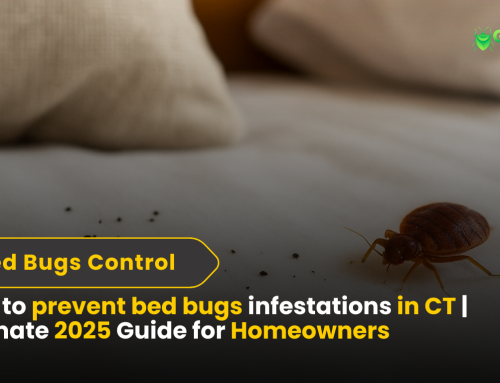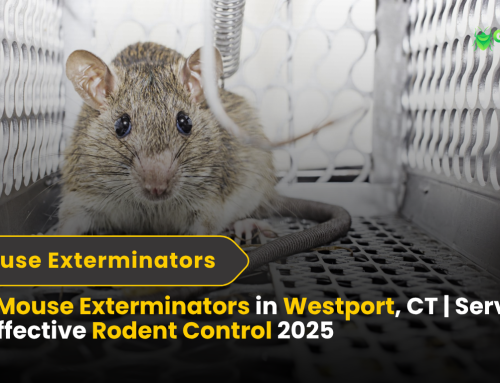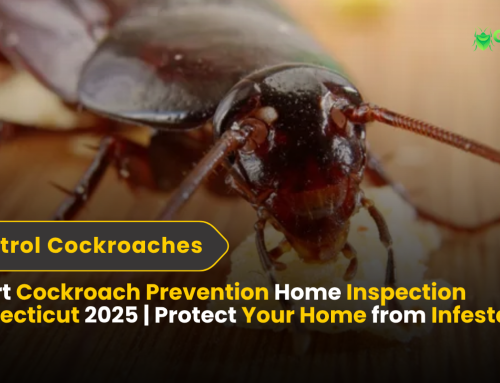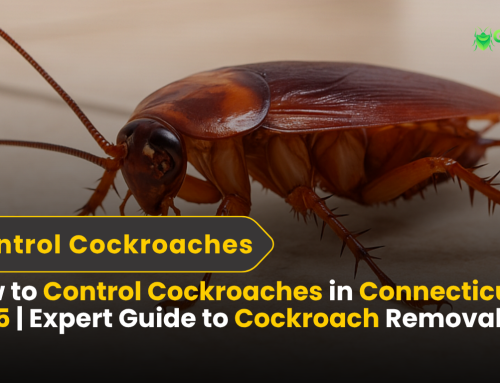Deadly Wasp Threats? Wasp Prevention Tips for 2025
Wasps are not just an annoying summer nuisance—they can also pose serious risks to your family, pets, and home. Stings from wasps can cause allergic reactions, pain, and even serious health complications for sensitive individuals. The good news is that by following effective wasp prevention tips, you can proactively reduce the risk of infestations, keep your home safe, and enjoy your outdoor spaces without worry. This guide provides 10 expert strategies for 2025, backed by trusted resources like government pest control guidelines and Wikipedia, ensuring safe, practical, and actionable advice.
Why Wasp Prevention Tips Are Crucial for 2025
Preventing wasps is not just about comfort—it’s about safety and protection. Wasp activity tends to increase during warm months, and these insects can build nests in high-traffic areas such as patios, decks, or roof eaves. According to Wikipedia, some wasp species are highly territorial and can sting multiple times, making them more dangerous than bees in certain scenarios.
Key reasons to prioritize prevention:
-
Reduce sting risk for children and pets: Wasps can sting repeatedly, causing allergic reactions that require urgent care.
-
Protect your property: Nests can damage wooden structures, rooflines, and garden plants over time.
-
Maintain outdoor comfort: Regular visits from wasps can ruin picnics, BBQs, and garden activities.
By implementing wasp prevention tips, you are taking proactive steps to minimize these risks while enjoying outdoor living safely.
Top 10 Wasp Prevention Tips and Strategies You Can Implement Today
Here are 10 actionable and expert-backed strategies to prevent wasps from invading your home and garden:
1. Seal Entry Points Carefully – Essential Wasp Prevention Tips
Inspect doors, windows, vents, and roof gaps thoroughly. Even a small 1/4-inch opening can allow wasps to enter and build nests. Use caulk, mesh screens, or weather stripping to seal openings effectively. Sealing gaps not only keeps wasps out but also improves energy efficiency in your home.
2. Maintain Your Garden Regularly – Key to Wasp Prevention Tips
Keep shrubs, hedges, and trees trimmed to reduce hiding spots for wasps. Remove fallen or rotting fruits and vegetables promptly, as their sweet smell attracts insects. Cover compost bins securely and clean up spills to prevent wasps from lingering in your outdoor spaces.
3. Use Natural Deterrents as Part of Wasp Prevention Tips
Peppermint oil, citronella, and eucalyptus are proven to repel wasps naturally. Planting wasp-repelling herbs near entrances, patios, and outdoor seating areas can create a natural barrier. Spraying diluted essential oils around potential nesting sites reinforces prevention without harming the environment.
4. Set Wasp Traps Strategically – Powerful Wasp Prevention Tips
Use DIY or commercial traps to lure and capture wasps. Place traps away from high-traffic areas like patios or children’s play zones to avoid attracting more insects to common areas. Check traps regularly and dispose of captured wasps safely to maintain effectiveness.
5. Practice Proper Trash Management Using Wasp Prevention Tips
Keep all trash bins tightly sealed, rinse out food containers, and clean up outdoor waste promptly. Wasps are attracted to sugary residues and food scraps, so careful disposal is key to prevention. Consider using bins with locking lids to reduce access further.
6. Limit Outdoor Food Exposure With Smart Wasp Prevention Tips
Cover food during barbecues or picnics and clean up immediately afterward. Sweet drinks, fruits, and leftovers are magnets for wasps. Encouraging guests to maintain clean tables and storing leftovers in sealed containers can significantly reduce wasp visits.
7. Avoid Strong Fragrances Outdoors – Support Wasp Prevention Tips
Perfumes, scented lotions, and floral-scented body products attract wasps. When spending time in the garden or on the patio, opt for unscented or lightly scented products. This simple adjustment helps reduce unwanted attention from foraging wasps.
8. Install Protective Screens or Nets – Physical Wasp Prevention Tips
Use window and door screens to prevent indoor entry. Outdoor nets over play areas or seating zones provide extra protection, especially in regions with high wasp activity. These barriers are safe for pets and children while reducing the chance of accidental stings.
9. Regularly Inspect for Nests Using Wasp Prevention Tips
Check under eaves, decks, sheds, and other sheltered spots for small nests early in the season. Removing nests when they are small prevents rapid colony growth. Always use caution and consider wearing protective clothing during inspections.
10. Know When to Call Professionals for Advanced Wasp Prevention Tips
Large or aggressive nests, especially in hard-to-reach areas, require licensed pest control services. Professionals have specialized sprays and removal tools that reduce risk and ensure safety for your family. Combining professional help with DIY strategies reinforces long-term prevention.
Combining several prevention methods—sealing gaps, using traps, and planting deterrent herbs—reduces wasp activity more effectively than relying on a single approach.
Checklist for Quick Reference:
-
Seal openings around the home
-
Maintain garden cleanliness
-
Use natural repellents
-
Install traps strategically
-
Cover food outdoors
-
Inspect and remove small nests regularly
Case Study Example:
A family in Southern California implemented garden trimming, natural deterrents, and DIY traps simultaneously. Over a single season, they reported an 80% reduction in wasp visits, demonstrating the cumulative impact of multiple strategies.
DIY vs Professional Wasp Control: When to Call an Expert for Wasp Prevention Tips
While many wasp prevention tips can be implemented safely at home, some situations call for professional intervention:
-
Large nests in attics, roofs, or wall voids.
-
Aggressive species like yellow jackets.
-
Households with members allergic to stings.
Professional pest control services provide safe, effective removal using targeted sprays and expert techniques. They also offer advice for ongoing prevention, ensuring that your home stays protected long-term.
Common Myths About Wasps and Their Control
Myth: Wasps only sting when provoked.
Fact: Certain species will sting repeatedly if they sense food or vibrations.
Myth: Killing one wasp eliminates the problem.
Fact: Colonies can contain hundreds of individuals, so prevention and nest removal are essential.
Myth: DIY sprays are always safe.
Fact: Some chemicals can be harmful to pets, children, and beneficial insects. Always follow safety guidelines.
Understanding these myths ensures that your prevention strategies are effective and safe.
Seasonal Wasp Activity: What to Expect Each Month
| Month | Wasp Activity Level | Key Prevention Tip |
|---|---|---|
| March-April | Low | Begin sealing gaps early and monitor nests |
| May-June | Medium | Set traps, maintain gardens, and use repellents |
| July-August | High | Limit outdoor food, increase deterrents, and inspect frequently |
| September | Medium | Remove small nests and maintain vigilance |
| October | Low | Store outdoor furniture and perform final inspections |
FAQs About Wasp Prevention
How can I prevent wasps from building nests near my home?
Seal gaps, maintain your garden, and use natural repellents like peppermint oil around entrances.
Are natural deterrents effective against wasps?
Yes, especially when combined with traps, garden maintenance, and careful waste management.
Can pets safely be around wasp traps?
Yes, if traps are placed out of reach and monitored closely. Professional guidance is recommended for high-risk areas.
What is the best time of year to implement prevention strategies?
Early spring is ideal for sealing gaps, while late summer and fall require extra vigilance around food and nests.
Conclusion: Take Action Now to Stay Wasp-Free
Following these wasp prevention tips allows you to enjoy your garden and outdoor spaces safely while reducing the risk of painful stings. Implementing DIY methods combined with professional guidance creates a reliable defense against infestations.
Don’t wait for a sting to happen—contact us today for expert pest prevention services and protect your home this season.










